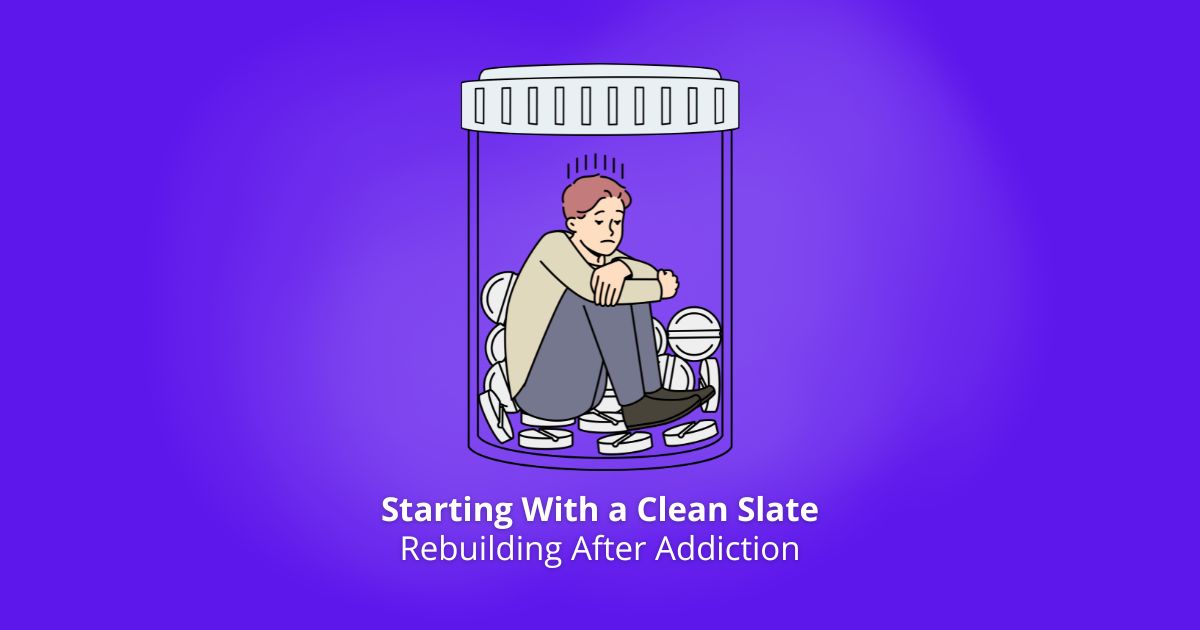Disclaimer:
The information in this article is for general informational purposes only and must not be taken as professional medical, psychological, or legal advice. If you or someone you know is struggling with addiction or mental health issues, consult a licensed professional immediately. The author assumes no responsibility for any actions taken based on this information. Always seek formal guidance from qualified healthcare providers before making changes to your recovery plan.
The path to recovery from addiction is often depicted as heroic and transformative, an opportunity to reclaim one’s life and cultivate a fresh start. While the end result is indeed empowering, the process of rebuilding after addiction is laden with challenges, self-discovery, and incremental victories.

It is a deeply personal journey that requires commitment, patience, and an unwavering belief in the possibility of change. For those embarking on this path, the rewards of a sober life are vast and meaningful. Below, we delve into the multifaceted experience of starting over after addiction.
➜ Understanding the Journey of Rebuilding After Addiction

Rebuilding after addiction involves more than just abstaining from substances; it requires addressing underlying issues like trauma or mental health disorders. Recognizing these factors is crucial to recovery, as individuals confront their past and work through the emotional challenges that come with change. This process often includes rediscovering passions or exploring new interests, which can be both exciting and difficult.
Seeking help is a key step, and many find support at a rehab center in Massachusetts, where professionals offer tailored recovery plans. Recovery is rarely a straight path—setbacks and relapses are part of the journey, providing valuable lessons. Embracing both the challenges and victories in recovery helps build resilience for a lasting, sober life.
➜ The Role of Support Systems in Starting Over After Addiction
Recovery is a complex process that requires a strong support system. This can be found in various forms, including family, friends, support groups, and professional counselors. Family and friends offer emotional support, while support groups and therapy foster a sense of community and understanding.
Sharing experiences and strategies with others who are facing similar challenges can foster a sense of belonging and collective strength. Online platforms and recovery apps provide constant connection to a supportive community, offering resources, reminders, and access to others’ stories, reinforcing the message that no one is alone in this journey.
➜ Setting Realistic Goals for Long-term Recovery
Goal-setting is key to successful recovery, but it’s important to make sure the targets are realistic. While big aspirations are great, breaking them into smaller, achievable milestones can help build momentum. Small victories, like attending support meetings or sticking to daily self-care routines, contribute to long-term success and reinforce commitment to change.
In the early stages of recovery, focusing on short-term goals like staying sober for a day or week can lay the foundation for larger aspirations. Over time, accomplishments pave the way for bigger milestones, such as advancing one’s career or pursuing further education through MSN nursing education programs, which can act as powerful motivators in the recovery journey.
➜ Embracing New Routines and Habits for a Sober Life

Rebuilding a life after addiction requires establishing healthy routines, such as attending therapy sessions, participating in group meetings, and exercising regularly. These activities provide a sense of order and well-being, triggering the release of mood-boosting endorphins.
Constructive habits, such as cooking nutritious meals, mindful meditation, and volunteering, create new neural pathways supporting sobriety. Although change can be uncomfortable, embracing new routines encourages growth and self-improvement, forming the foundation of a sober identity. These habits often replace the urge to seek substances with healthier, more rewarding endeavors.
➜ Overcoming Challenges and Setbacks in Post-Addiction Rebuilding
Despite the most diligent efforts, individuals may face obstacles and setbacks as they rebuild their lives post-addiction. Understanding that challenges are part of the journey is essential to maintaining resilience during difficult times. It is common for triggers to emerge, tempting individuals to revert to old behaviors. Relapse should not be viewed as a defeat but as an indication that adjustments in the recovery plan may be necessary. It is the response to these setbacks that defines the course of one’s recovery.
Many find that developing coping strategies and contingency plans for high-risk situations can reduce the possibility of relapse. This proactive approach empowers individuals to navigate challenges with more confidence and less fear. Continually reassessing and adapting one’s support network, recovery strategies, and personal goals is integral to overcoming the hurdles that may arise. Staying flexible and open to change can make all the difference in building a robust, sober life.
Overall, rebuilding after addiction is a transformative process that encompasses self-discovery, the formulation of constructive habits, and the nurturing of a healthy support network. As individuals face and overcome the challenges of this journey, they craft a life rich in purpose and fulfillment, free from the constraints of substance dependency.